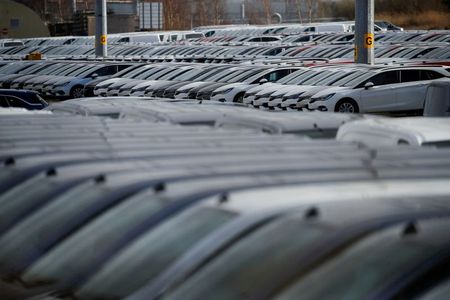British vehicle production grew at fastest rate in over a decade in 2023

British vehicle production rose 17 per cent last year as an ease on the global semiconductor shortage and increasing electrified output drove growth.
Some 1,025,474 cars and commercial vehicles rolled off factory lines at a value of £50bn, with the increase marking the best growth rate since 2010.
Production of battery powered and hybrid models surged 48 per cent, accounting for almost two fifths of overall output, despite concerns of a slowdown in the latter part of the year.
The European Union (EU) remained the sector’s largest global market, taking 60.3 per cent of exports, followed by the US and China, which both saw shipments decline slightly. European automakers were overjoyed at the news in December that looming tariffs on EV’s traded across the channel would be pushed back until 2027.
Mike Hawes, SMMT Chief Executive, said: “Receding supply chain challenges, new model introductions and a massive £23.7bn of investment put UK vehicle production firmly back on track in 2023.”
However, he cautioned reporters at a press event in London that the figures were still “nowhere near where we used to be” prior to the pandemic.
“Industry will now focus on the delivery of these commitments, transitioning the sector at pace to electric and scaling up the supply chain. With global competition as fierce as it has ever been and amid escalating geopolitical tensions, both government and industry must remain singularly focused on competitiveness, with all the jobs and growth this will bring,” Hawes said in a statement.
Media coverage was dominated by the transition to EVs last year. The UK benefited from a string of investments by major automakers throughout 2023.
Nissan confirmed a £2bn investment into producing new electric models at its plant in Sunderland in November.
BMW unveiled plans for a £600m investment in its electric Mini plant in Oxford in September, securing the long term future of mini production in the UK.